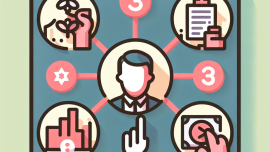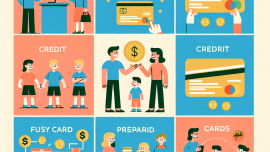
I Found £200 in Forgotten Subscriptions – Try This Audit Trick
Understanding the Basics: What Is a Budget and Why You Seriously Need One
Hey there, friend! I’m Tom — your friendly neighborhood finance nerd. I’ve got a confession: I used to think “budget” was just a fancy word adults threw around when they didn’t want to spend money on pizza. I was wrong. Turns out, having a budget is like giving your money a map — and if you’re just getting started with your finances, this is your compass to financial freedom. Let’s break it down, real talk.
What Exactly Is a Budget?
At its core, a budget is a plan for how you’ll spend and save your money. Simple, right? It helps you see what comes in (your income) and what goes out (your expenses). Think of it as a money diary — but instead of confessing your impulse buys at 2 AM on Amazon, you’re being intentional with your cash.
Now, here’s where most people panic. “Tom, I’m not good with numbers!” Trust me, you don’t need to be a mathematician or even own a pocket calculator. You just need the will to take control. Let’s unpack how budgeting actually works and why it’s way cooler than you think.
Why You Absolutely, Positively, Must Have a Budget
A budget isn’t just about restrictions. It’s about freedom, my friend. It’s the difference between your money telling you what to do…and you telling your money where to go.
Still not convinced? Here’s why budgeting is a total game-changer:
- Clarity: Know exactly where your money is going every month.
- Control: No more wondering “Why am I broke before payday?”
- Progress: Set goals and crush them — pay off debt, invest, or save for that vacation in Bali (hey, dream big).
- Peace of mind: Say goodbye to that oh-no-the-rent-is-due stress.
Sound good? Let’s dig into how you can set up your very first budget — no sweat required.
Step-by-Step: How to Create Your First Budget
Step 1: Know Your Monthly Income (a.k.a The Money Coming In)
Before you can boss your money around, you need to know how much you’re working with. This includes:
- Your salary (after taxes!)
- Side hustle income (Uber driver? Freelance graphic designer? OnlyFans tax tips guru?)
- Any passive income — like dividends or rental income
If your income varies, take an average of the last 3 months. Stay conservative, especially if your paycheck changes a lot.
Step 2: Track Your Expenses (Yep, Every Coffee Counts)
Here’s where things get real. Check your bank statements and list out every monthly expense:
- Fixed Expenses: These don’t change — rent, car payments, subscriptions like Netflix (or that random meditation app you forgot about).
- Variable Expenses: These can vary — groceries, dining out, gas, shopping, etc.
Write it ALL down. No judgement here. But if that $200 coffee budget surprised you… you’re not alone.
Step 3: Crunch the Numbers (Yes, You Can Use a Calculator)
Now subtract your total expenses from your total income. The goal: more coming in than going out. If you’re breaking even or, worse, in the negative — don’t panic! That just means it’s time to make some tweaks.
Step 4: Set Realistic Budget Categories
This part is fun (yes, budgeting can actually be fun — surprise!). You’ll assign limits to different categories:
- Rent/Mortgage
- Utilities
- Groceries
- Transportation
- Entertainment
- Savings
- Debt Payments
Be honest about your lifestyle — but don’t go wild. (Five-star dining on a pizza budget? Maybe not yet.)
Step 5: Adjust, Refine, Repeat
Don’t expect to nail it on your first try. Budgets are living, breathing creatures. They evolve. You’ll learn which categories need more room, where you can cut back, and how much you can actually save.
Pro tip: Use budgeting apps like YNAB (You Need A Budget), Goodbudget, or just a trusty spreadsheet. Heck, a notebook works too. Whatever keeps you accountable.
Common Budgeting Mistakes to Avoid
Let’s be real — some folks make budgeting harder than it needs to be. Here are a few rookie mistakes to dodge like taxes on free money (which, by the way, still get taxed):
- Ignoring irregular expenses: Birthdays, holidays, dentist visits — they sneak up. Budget a little each month for them.
- Being too strict: Cutting out all fun is budgeting blasphemy. Leave some space for joy (and tacos).
- Not tracking: Budgeting without tracking is like planning a road trip without checking the GPS.
- Forgetting savings: “I’ll save what’s left at the end of the month” is a trap. Pay yourself first!
Final Thoughts: You Got This!
Look, starting a budget might feel a little overwhelming, but you’ve already taken the biggest step: caring about your money. That puts you ahead of the game. Remember: budgeting isn’t about perfection — it’s about intention.
This is your roadmap to smarter decisions, fewer surprises, and more peace about your finances. And from one ex-budget-avoider to another? It’s 100% worth it.
Want more tips for getting started with your financial journey? Check out our About Us to learn more about what we do here at FinanceOne, or Contact Us to ask your burning money questions. We’re here for you!
Until next time — keep your dollars in line, your coffee strong, and your spreadsheets color-coded. You’re doing great.









Leave a Reply